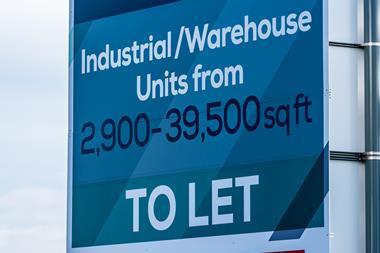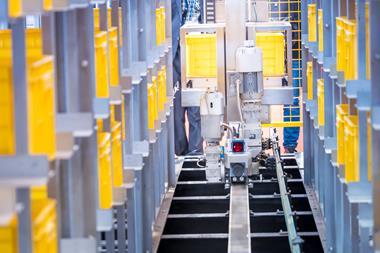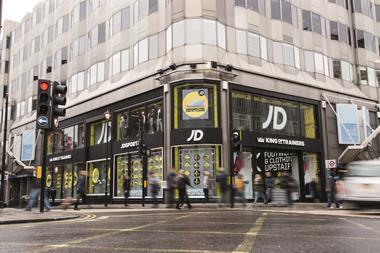While people continue to study the fallout of Covid and the post-Brexit era, one fact remains: UK ecommerce is at an all-time high and will only get better, says Jack Williams, chief executive and founder of Selazar.
According to Statista, 87% of UK households made online purchases in 2020. Kooomo chief executive Ciaran Bollard has predicted that online retail spend in the UK will reach £75bn by 2024.
And now that more people are on the digital bandwagon, rising sales in 2021 have prompted companies to get more warehouse space.
Retailers, third-party logistics (3PLs) and other supply-chain businesses are seeking out more real estate, from last-mile delivery to big distribution centres. BNP Paribas Real Estate’s research says warehouse space has increased by 73% since Covid.
Ben Wiley, BNP Paribas’ head of industrial and logistics agency, says: “Covid-19 has accelerated pre-existing consumer trends and speeded up demand for online shopping at an incredible pace, resulting in much greater need for warehouse space for retailers, supermarkets and third-party logistics providers.
“Changing consumer habits, along with uncertainty around the UK’s trading relationship with the EU, is likely to result in continued uptick in demand as businesses may look at bringing supply chains closer to home.”
Growing to meet demand
The surge in online retail and distribution has garnered more investment and attention in the past year.
Companies like Selazar are securing more financing to meet the growing space requirements of retailers as customer demand increases.
Expanding warehouse operations is a high priority to meet the needs of the behemoth 2021 ecommerce market and beyond.
“As companies plan long-term strategies for ecommerce growth, it makes sense to outsource warehousing operations to offer greater flexibility and lower costs”
Securing more investors is always a solution. Or, rather, simply partnering with other companies and 3PLs may be more beneficial options for etailers.
As companies look ahead and plan long-term strategies for ecommerce growth, it makes sense to outsource warehousing operations to offer greater flexibility and lower overall costs. Location is always a consideration as well.
Warehouses near motorways and major highways have quicker access to customers and markets. This can help retailers expand not only their demographics, but their bottom line, too.
Customer focus
Covid has opened a Pandora’s box of online shopping. More customers have joined the home-delivery revolution, but the demand for 24- and 48-hour delivery has also increased.
Without efficient systems to meet the needs of instant gratification, customers will begin to abandon ship. It is both our responsibility to our customers, as well as our industry, to be quicker and better.
Being more efficient in your warehouse means a tech-first approach for both space and time – digital mapping and routing workers correctly around the warehouse matters when every second counts. Also, increasing the dispatch cut-off time into the evening makes service better.
It is reasons like this why Selazar received an award nomination for warehouse efficiency from The Logistics Awards.
We live in an evolving world. Ensure you have the right strategy, warehouse management and partners to grow into the ecommerce market through 2021 and beyond.
Jack Williams is chief executive and founder of Selazar

Jack Williams is a visionary leader nominated for Entrepreneur of the Year in 2019, as well as Founder of the Year in 2020, at the Digital DNA Awards. He holds more than 12 years of leadership and logistical insights for the ecommerce industry.
Williams is passionate about using his talents in technology to create innovative solutions for retailers and brands. As a serial entrepreneur with a record of success in many enterprises, he is now focusing on the future for both his brands: Selazar and Return Robin.




























